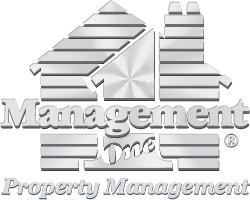AB 3088: HOW THE RESIDENT RELIEF ACT AFFECTS YOUR CALIFORNIA RENTAL PROPERTY
AB 3088, also known as the Tenant Relief Act, was passed in California. This ordinance is designed to help residents that have been affected by COVID-19 and have struggled to keep up with rent.
Disclaimer: We are not attorneys. This is not designed to be legal advice. We always recommend that you contact your attorney about your specific properties. Our information on this topic comes from our attorneys, the California Association of Realtors, and the California Apartment Association. Please read the law AB3088 for more information.
WHAT IS AB 3088?
AB 3088 is a bill that limits a landlord’s ability to evict a resident for non-payment of rent from March 1, 2020 to January 31, 2021, if the resident has experienced a financial hardship related to COVID-19. It bans evictions for residents who were unable to pay their rent between March 1 and August 31 due to financial hardship caused by the pandemic. It also bans evictions for residents from September 1st through January 31, but only if the residents pay at least 25% of their rent owed during that time. This can be paid monthly or all at once prior to January 31. You can read the full bill here.
HOW DOES AB 3088 WORK?
If a resident has not paid rent for any period between March 1, 2020, and January 31, 2021, the COVID-19 Resident Relief Act of 2020 ("Rent Relief Law") will allow most residential residents to remain in the rental property through January of 2021 so long as the resident makes a declaration under penalty of perjury that they are unable to pay their rent or meet other financial obligations because of circumstances related to the COVID-19 pandemic. Only a resident who returns a signed declaration after a pay or quit notice is served is protected. The law also extends the standard 3 days to pay rent or quit notice to 15 days.
There are two time periods covered in the bill.
1. Protected Time Period
Rent owed from March 1, 2020 to August 31, 2020 is considered the “protected time period”. Landlords and management companies were required to serve the resident a notice advising them of their rights by September 30th, 2020. The resident was required to sign and return the declaration stating they've been financially hurt by COVID-19. If the resident submits the signed declaration, they are protected from eviction for rents owed during this time. Their debt becomes consumer debt, and the landlord can sue for a judgment starting March 1st, 2021.
2. Transition Time Period
Rent owed from September 1, 2020 to January 31, 2021 is considered the “transition time period”. If the resident signs a declaration stating that they have been financially hurt by COVID-19, the same rules apply except the resident must pay at least 25% of their rent by January 31st, 2021. The 25% can be paid monthly or all at once by January 31st.
Residents must sign the declaration each month to continue to qualify for the protection from eviction. High income residents must prove their hardship to qualify. High income is determined if the resident earns more than 130% of the median income.
If the resident fails to pay 25% by January 31st, 2021, then you can start the eviction process on February 1st.
If the resident pays the 25% of the rent, the other 75% of rent is still due. To collect the remaining balance, you must sue in small claims court starting on March 1st, 2021. The Rent Relief Law permits a claim for the unpaid rent to be brought in small claims court, beginning March 1, 2021. The courts increased the amount that you can sue for to accommodate the large balances of rent.
JUST CAUSE EVICTION IMPLICATIONS
The Rent Relief Law temporarily requires all residential landlords in California to comply with the just cause eviction procedures of The Resident Protection Act of 2019 (also known as AB 1482) in order to find a resident guilty of unlawful detainer on or after March 1, 2020 and before February 1, 2021. This is the case even when the property would otherwise be exempt under AB 1482. However, an owner of a single-family property or condo can terminate a tenancy when they are selling the property to a buyer who will take occupancy.
CDC EVICTION MORATORIUM IMPLICATIONS
In September, the CDC, in an unprecedented event, declared an eviction moratorium of its own. It is not entirely clear how their moratorium impacts California and AB 3088. Governor Newsom stated that AB 3088 is stricter than the CDC moratorium, so it takes precedent. However, that is not true in all instances. Here's how they differ.
- Under both ordinances, the resident is required to return the declaration prior to any protections taking place. Once the declaration is returned, under AB 3088 the resident is protected until January 31 so long as they pay 25% of the rent of the total rent. Under the CDC moratorium, they are only protected until December 31, but are not required to pay any rent.
- Under the CDC order residents only need to return the declaration once; under AB 3088 landlords can require a monthly declaration. Additionally, they must provide a copy of the AB 3088 declaration to the resident along with the 15-day notice. The CDC moratorium does not require this.
- The AB 3088 declaration must be returned to the landlord within 15 days; the CDC moratorium can be returned at any time--even up to the lockout.
- The CDC moratorium does not allow for any "no fault" evictions until after December 31, 2020. The only allowed reasons are as follows: breach of lease, criminal activity, behavior that threatens the health or safety of others, property damage, or violation of building codes or health ordinances. Under AB 3088, there are several "no fault" reasons that can evict a resident that are not allowed under the CDC order (removing the unit from the rental market, the owner of the property moving in, etc.)
- AB 3088 allows a landlord to ask for proof of financial hardship from high income residents. The CDC moratorium does not.
FREQUENTLY ASKED QUESTIONS
On what basis could the resident claim to have experienced "COVID-19-related financial distress?"
COVID-19 related financial distress can be based on either or both a loss of income or an increase in expenses including any of the following:
1. Loss of income caused by the COVID-19 pandemic.
2. Increased out-of-pocket expenses directly related to performing essential work during the COVID-19 pandemic.
3. Increased expenses directly related to health impacts of the COVID-19 pandemic.
4. Childcare responsibilities, or responsibilities to care for an elderly, disabled, or sick family member directly related to the COVID-19 pandemic that limits the resident's ability to earn income. I.E.- Forced to stay home to care for children that are at home now.
5. Increased costs for childcare or attending to an elderly, disabled, or sick family member directly related to the COVID-19 pandemic.
6. Other circumstances related to the COVID-19 pandemic that have reduced resident's income or increased their expenses.
If I am a property owner, can I evict my resident for reasons other than nonpayment of rent?
Prior to February 1, 2021, an eviction can only be filed for “just cause” as described in AB 1482. This does NOT include non-payment of rent if they return the signed declaration declaring they have been impacted by COVID-19. They have added some additional restrictions in cases related to demolition and substantial renovation for health and safety or when the owner is selling the property and the new owners will occupy the property. Landlords are unable to proceed with an eviction based on a Notice of Non-Renewal or a 30/60-Day Notice without cause. This provision applies to all tenancies immediately, including tenancies less than one-year, affordable housing, new construction, and single-family homes.
How does the CDC eviction moratorium affect AB3088?
Governor Newsom has publicly taken the position that the CDC eviction moratorium does not apply in California because the state and local restrictions already in place are more far-reaching. It’s unknown how judges will interpret it.
Can a landlord serve a 3-day Notice to Pay Rent or Quit?
All notices for rent owed between March 1st, 2020 through January 31st, 2021 require a 15-day notice and a declaration.
If the landlord is demanding rent that was due between March 1, 2020, and August 31, 2020, a notice for this rent must be served by September 30th,2020.
For rent owed starting September 1st through January 31st, the notice has to be modified to a 15-day notice to pay rent or quit or a 15-day notice to perform covenant or quit (when demanding COVID-19 rental debt).
What happens if I failed to comply with serving the proper notice by September 30th?
The Tenant Relief Act doesn’t explicitly state the consequences of failing to serve the notice by September 30th.






